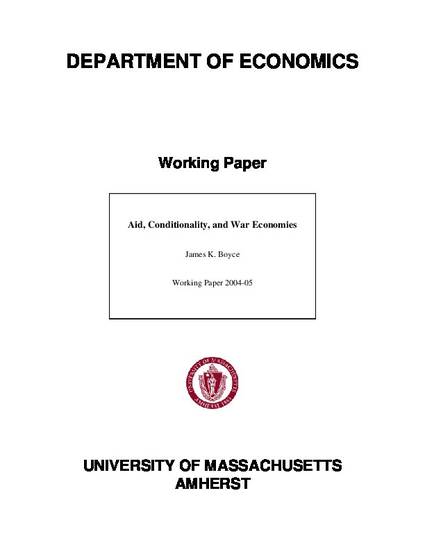
When natural resource revenues provide an important motive and/or means for armed conflict, the transition from war peace faces three challenges: (i) ensuring that the benefits and costs of natural resource exploitation are distributed so as to ease rather than exacerbate social tensions; (ii) channeling revenues to peaceful and productive purposes; and (iii) promoting accountability and transparency in natural resource management. Aid conditionality can help to address these challenges provided that three prerequisites are met: (i) there are domestic parties with sufficient authority and legitimacy to strike and implement aid-for-peace bargains; (ii) donor governments and agencies make peace their top priority, putting this ahead of other geopolitical, commercial, and institutional goals; and (iii) the aid ‘carrot’ is substantial enough to provide an incentive for pro-peace policies. Case studies of Cambodia, Angola, and Afghanistan illustrate both the scope and limitations of peace conditionality in such settings.
Available at: http://works.bepress.com/james_boyce/32/
